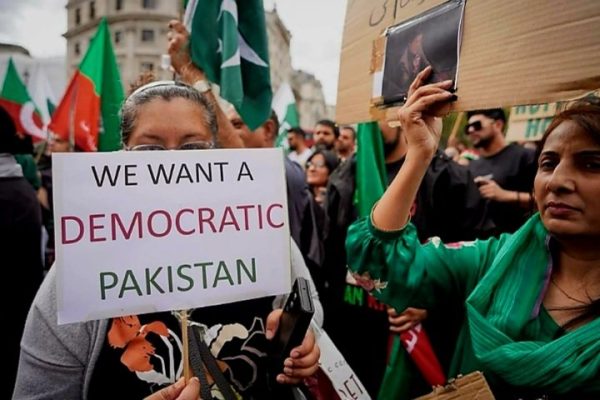Pakistan’s new coalition government has its work cut out on the economic front. As part of the second review of the current $3 billion bailout package, International Monetary Fund (IMF) officials are scheduled to visit Pakistan in March to review the implementation of the targets agreed during last year’s review with the Anwaar-ul-Haq Kakar-led interim government.
Seemingly, the outgoing interim government has achieved nearly all of the targets set by the IMF during the second review for Pakistan to obtain the last $1.1 billion payment. In a report that the caretaker government sent to the international lender a few days ago, the Ministry of Finance confirmed that 25 of the 26 financial targets set by the IMF for the second economic review were met.
With the current IMF loan agreement coming to an end in the coming weeks, securing financing from multilateral and bilateral partners will be one of the most urgent issues on the agenda for the new government. It seems that the latter will begin preparing for talks on a significant new agreement worth $6 billion when the IMF delegation arrives in Pakistan next month.
However, navigating this financial landscape is anything but straightforward, as political controversies stemming from recent elections have created challenges.
Despite innumerable restrictions imposed on the Pakistan Tehreek-e-Insaf (PTI)’s participation in the election — among other things, it was denied the use of its traditional election symbol, the cricket bat, forcing its candidates to contest as independents — candidates it supported managed to secure the largest number of seats in the National Assembly. Even with its impressive showing, PTI lacks a majority, and a Pakistan Muslim League-Nawaz (PML-N)-Pakistan People’s Party (PPP) coalition is set to form the new federal government.
The PTI claims it would have performed better if the polls had not been rigged. It has promised to continue pursuing the case of election fraud in all pertinent local and international platforms.
Last week, former Prime Minister and PTI founder Imran Khan wrote a letter to the IMF appealing to the global lender not to finalize another loan package unless the recent election is audited. The PTI’s letter to the IMF has drawn heavy criticism in Pakistan for putting party interests ahead of those of the country.
Furthermore, while the letter’s substance may not have any effect on the IMF’s collaboration with the incoming government, it can be expected to annoy Pakistan’s influential military establishment, which hopes for a seamless loan negotiating process. This would only widen the divide between Khan and the military establishment, which already regards the PTI chief as untrustworthy and unreliable.
By writing a letter to the IMF at this point, the PTI has further eroded any chances of support it may have been anticipating from the international community.
The IMF has already expressed its eagerness to “work with the new government” in Pakistan. The lender has not commented on the letter from Khan about alleged election tampering.
It is not just the military establishment that distrusts Khan; the IMF is likely to feel the same way too. As prime minister, Khan chose to extend energy and gasoline subsidies in early 2022, breaking a previous agreement with the IMF. Ahead of the August 2022 IMF executive board meeting, the PTI leadership advised its then-provincial governments in Punjab and Khyber Pakhtunkhwa to renege on their promises of provincial surplus, a key requirement agreed upon with the lender. Surpluses are amounts that provinces do not spend from federal funds transferred to them.
Khan’s decision to go to the IMF to address a domestic problem has given an impression to the international community that the PTI founder would stop at nothing to defend himself and further his interests, even if it meant pushing the country closer to a default-like scenario.
Still, the PTI is a popular political party in Pakistan. It is expected to form the government in Khyber Pakhtunkhwa province and might act as a spoiler to undermine the government at the federal level.
The IMF might discreetly request Pakistani officials to reach out to the PTI leadership to foster a consensus for the next major agreement. The coalition government has already referred to holding extensive talks with all parties to settle any disputes. However, Khan is unlikely to agree to such suggestions at this point, given his party’s marginalization. These scenarios might make Pakistan’s negotiations with the IMF more difficult and could strengthen the hand of the lender.
Pakistan would not have much room to make mistakes in the future beyond PTI-related issues. It would be imperative, for example, to watch the person the new government chooses to be the country’s next finance minister.
A high-ranking diplomatic source told The Diplomat on condition of anonymity that the IMF might not feel comfortable working with Ishaq Dar, who belongs to the PML-N and served as finance minister during former Prime Minister Shehbaz Sharif’s premiership.
Dar has long opposed devaluing the Pakistani rupee in relation to the U.S. dollar, a stance that the IMF has expressed major concerns about. He gained notoriety for vocally opposing the IMF’s requirements both secretly and publicly, which has in the past caused delays in closing accords with the international lender.
It is therefore possible the military will oppose Dar helming the finance ministry.
The new finance minister will probably have far stronger ties to the military and will be able to function more independently of the prime minister or other coalition partners. The choice is significant in light of Pakistan’s extreme economic hardships and debt situation.
The days ahead for the new government will be difficult. Not only will it need to emerge from the shadow of a controversial election and Khan’s allegations, but also it will have to make difficult decisions to secure a fresh financing arrangement.




















Discussion about this post